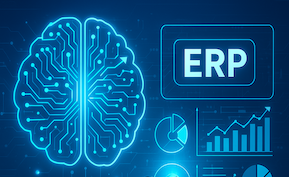Artificial Intelligence
CRM
AI CRM Implementation Timeline: Your 90-Day Customer Success Strategy

AI CRM implementation success depends on achieving early wins that demonstrate value across Marketing, Sales, and Service while building momentum for comprehensive customer relationship transformation. This detailed 90-day customer success strategy provides organizations with a proven framework for realizing immediate benefits from AI CRM investment while establishing the foundation for long-term competitive advantage.
The Strategic Importance of Quick Wins
Building Organizational Confidence:
Early success demonstrates the value of AI CRM investment, generating enthusiasm and support from stakeholders across Marketing, Sales, and Service departments. Quick wins provide tangible evidence that the system will deliver promised benefits.
Momentum Generation:
Initial success creates positive momentum that accelerates adoption and reduces resistance to change. Teams become advocates for the new system when they experience immediate improvements in their daily customer interactions.
Risk Mitigation:
Quick wins reduce implementation risk by validating technical architecture and business processes early in the deployment. Issues can be identified and resolved before they impact critical customer relationships.
ROI Acceleration:
Immediate benefits begin generating return on investment from day one, improving the overall financial performance of the CRM implementation project.
Pre-Implementation Preparation (Weeks -4 to 0)
Week -4 to -3: Foundation Setting
Project Team Assembly:
- Executive Sponsor: Senior leadership champion with decision-making authority
- Project Manager: Experienced leader with AI CRM implementation expertise
- Marketing Lead: Marketing operations professional responsible for campaign and lead management
- Sales Lead: Sales operations manager responsible for pipeline and forecasting
- Service Lead: Customer success or support manager responsible for satisfaction and retention
- IT Technical Lead: Technology professional responsible for system configuration and integration
- Change Management Specialist: Expert in organizational change and user adoption
Infrastructure Preparation:
- Network connectivity assessment and optimization for cloud-based AI CRM access
- Data backup and security protocols establishment
- Integration point identification with existing marketing, sales, and service systems
- User access and security role definition across all customer-facing departments
Success Criteria Definition:
- Specific, measurable quick win targets for 30, 60, and 90-day milestones
- Key performance indicators (KPIs) for marketing, sales, and service success
- User adoption goals and measurement methods across all departments
- Communication plan for celebrating successes and addressing challenges
Week -2 to -1: Technical Readiness
System Configuration:
- Basic user accounts and security roles setup for all departments
- Core master data preparation (customers, products, services, territories)
- Integration testing with critical external systems (marketing automation, email, phone)
- Mobile device configuration for field sales and service teams
Training Material Preparation:
- User guides and quick reference materials for priority processes across departments
- Video tutorials for common AI features and workflows
- Help desk procedures and support contact information
- Change management communications and success story templates
Data Migration Planning:
- Critical data identification for immediate migration (active customers, open opportunities, service cases)
- Data quality assessment and cleansing procedures
- Migration testing and validation protocols
- Rollback procedures for risk mitigation
30-Day Quick Win Phase: Immediate Impact
Week 1-2: Core Process Activation
Day 1-3: Go-Live Foundation
- User Account Activation: All identified users can access the system with appropriate permissions
- Basic Navigation Training: 2-hour sessions for each department covering essential system navigation
- Help Desk Launch: Support resources available for immediate user assistance
- Communication Blast: Organization-wide announcement of go-live with success expectations
Day 4-10: Priority Process Implementation
- Marketing Automation: AI-powered lead scoring and automated nurturing campaigns activated
- Sales Pipeline Management: Opportunity tracking and basic forecasting with real-time visibility
- Customer Service: Case management and customer communication tracking implementation
- Mobile Access Configuration: Key personnel equipped with mobile access for field operations
Day 11-14: Process Optimization
- User Feedback Collection: Systematic gathering of user experiences and improvement suggestions
- Workflow Refinement: Adjustment of processes based on initial user feedback
- Performance Monitoring: Analysis of system performance and user adoption metrics
- Success Story Documentation: Capture and communication of early wins and benefits
Week 3-4: Intelligence Enhancement
AI Feature Activation:
- Predictive Lead Scoring: Automated qualification and prioritization of marketing leads
- Customer Health Monitoring: Basic customer satisfaction and retention risk assessment
- Sales Forecasting: Initial AI-powered pipeline analysis and deal probability assessment
- Service Intelligence: Automated case routing and customer communication optimization
Process Automation Expansion:
- Marketing Campaign Automation: Personalized email sequences based on customer behavior
- Sales Task Automation: Automated follow-up reminders and activity logging
- Service Case Management: Intelligent case assignment and escalation procedures
- Cross-Department Coordination: Shared customer visibility and handoff optimization
30-Day Success Targets:
- 90% user login rate with basic system proficiency across all departments
- 50% reduction in manual data entry for target processes
- Real-time visibility into marketing, sales, and service performance
- Positive user feedback on system ease of use and immediate benefits
60-Day Optimization Phase: Expanded Capabilities
Week 5-6: Advanced Process Implementation
Intelligent Automation Deployment:
- Advanced Lead Nurturing: AI-powered email campaigns with behavioral triggers
- Sales Intelligence: Deal coaching and optimization recommendations
- Customer Success Automation: Proactive outreach based on health scoring
- Service Optimization: Predictive case resolution and customer satisfaction improvement
Integration Enhancement:
- Marketing Platform Integration: Seamless data flow between AI CRM and marketing automation systems
- Communication Platform Connection: Email, phone, and video integration for complete activity tracking
- Support Tool Integration: Help desk and knowledge base connectivity
- Analytics Platform Links: Business intelligence and reporting system integration
Week 7-8: Performance Optimization
AI Model Refinement:
- Learning Algorithm Optimization: Fine-tuning of AI models based on organizational data and patterns
- Custom Intelligence Development: Implementation of organization-specific AI applications and insights
- Advanced Analytics Configuration: Sophisticated customer intelligence and predictive modeling
- User Interface Personalization: Customization of dashboards and workflows based on role and preferences
Process Excellence Initiatives:
- Workflow Automation: Implementation of complex customer journey and business rule automation
- Quality Control Systems: AI-powered quality assurance and exception handling procedures
- Compliance Monitoring: Automated regulatory compliance tracking and reporting
- Performance Benchmarking: Comparison of organizational performance against industry standards
60-Day Success Targets:
- 80% improvement in customer engagement efficiency for automated workflows
- 25% reduction in manual effort across key customer-facing processes
- Real-time predictive insights available to decision-makers
- Advanced AI features actively used by 70% of users
90-Day Excellence Phase: Competitive Advantage
Week 9-10: Strategic Intelligence Implementation
Advanced AI Capabilities:
- Customer Lifetime Value Prediction: Advanced analytics for customer segmentation and value optimization
- Market Intelligence: Competitive analysis and market trend identification through AI-powered research
- Revenue Forecasting: Sophisticated customer and revenue prediction models
- Service Excellence: Predictive customer satisfaction and proactive issue prevention
Autonomous Operations:
- Self-Healing Processes: Automated problem identification and resolution for routine customer issues
- Dynamic Resource Allocation: AI-powered optimization of marketing, sales, and service resources
- Intelligent Decision Making: Automated execution of standard customer management decisions within defined parameters
- Continuous Improvement Systems: AI identification of optimization opportunities and implementation recommendations
Week 11-12: Excellence and Scalability
Performance Maximization:
- System Optimization: Fine-tuning of performance based on actual usage patterns and customer requirements
- Advanced User Training: Sophisticated feature training for power users and customer success managers
- Innovation Integration: Implementation of cutting-edge AI features and capabilities
- Best Practice Documentation: Capture and sharing of lessons learned and optimization techniques
Scalability Preparation:
- Capacity Planning: Analysis of system capacity and scalability requirements for future customer growth
- Process Standardization: Documentation and standardization of optimized customer management processes
- Knowledge Management: Creation of organizational knowledge base and customer expertise repository
- Future Roadmap Development: Planning for continued enhancement and capability expansion
90-Day Success Targets:
- 40% improvement in overall customer engagement efficiency
- 90% user adoption with advanced feature utilization
- Measurable competitive advantages in customer service, retention, or market responsiveness
- Strong foundation for continued AI CRM evolution and enhancement
Industry-Specific Quick Win Strategies
Technology/SaaS Quick Wins
30-Day Targets:
- Real-time customer health monitoring and churn prediction
- Automated trial user nurturing and conversion optimization
- Product usage analytics integration with customer success
- Streamlined customer onboarding and support processes
60-Day Targets:
- Advanced customer success automation and expansion identification
- Intelligent sales forecasting with subscription analytics
- Customer feedback analysis and product development insights
- Proactive customer success and retention programs
90-Day Targets:
- Predictive customer lifetime value and segment optimization
- Advanced product-led growth and expansion revenue strategies
- Autonomous customer success and support optimization
- Competitive intelligence and market positioning advantages
Professional Services Quick Wins
30-Day Targets:
- Real-time client relationship and project profitability visibility
- Automated business development and proposal management
- Client communication and engagement tracking
- Basic client health and satisfaction monitoring
60-Day Targets:
- Intelligent client relationship management and expansion identification
- Advanced business development and referral optimization
- Client satisfaction prediction and proactive intervention
- Automated knowledge management and expertise sharing
90-Day Targets:
- Predictive client success and relationship optimization
- Advanced market intelligence and competitive positioning
- Autonomous client engagement and value delivery
- Strategic business development and growth planning
Manufacturing Quick Wins
30-Day Targets:
- Real-time account relationship and opportunity visibility
- Automated customer communication and service tracking
- Basic customer health and satisfaction monitoring
- Streamlined order management and customer service
60-Day Targets:
- Advanced account management and expansion opportunity identification
- Customer service optimization and proactive support
- Sales forecasting and capacity planning enhancement
- Automated customer feedback and satisfaction tracking
90-Day Targets:
- Predictive customer analytics and relationship optimization
- Advanced service delivery and customer satisfaction management
- Autonomous customer engagement and support optimization
- Strategic account planning and growth management
Success Measurement and Continuous Improvement
Key Performance Indicators (KPIs)
User Adoption Metrics:
- System login frequency and session duration across departments
- Feature utilization rates across different user roles and departments
- User satisfaction scores and feedback sentiment
- Training completion rates and competency assessments
Customer Engagement Performance:
- Marketing campaign performance and lead generation improvements
- Sales pipeline velocity and conversion rate enhancements
- Customer service response times and satisfaction improvements
- Customer retention and expansion rate optimization
Business Impact:
- Revenue growth through improved customer engagement
- Cost reduction through automation and efficiency
- Customer satisfaction improvements across all touchpoints
- Competitive advantage indicators and market performance
Continuous Improvement Framework
Weekly Review Process:
- Performance metric analysis and trend identification
- User feedback review and action item generation
- Customer engagement optimization opportunities assessment
- Success story documentation and communication
Monthly Optimization Cycle:
- Comprehensive performance review against targets
- Process refinement based on actual usage patterns and customer feedback
- Advanced feature deployment planning
- User training needs assessment and delivery
Quarterly Strategic Assessment:
- ROI analysis and business case validation
- Market competitive position evaluation
- Technology roadmap review and updates
- Organizational capability development planning
Risk Management and Issue Resolution
Common Implementation Challenges
User Resistance:
- Prevention: Comprehensive change management and communication across departments
- Resolution: Individual coaching and success story sharing
- Mitigation: Gradual feature introduction and user support
Technical Issues:
- Prevention: Thorough testing and phased deployment
- Resolution: Rapid response technical support team
- Mitigation: Rollback procedures and alternative workflows
Process Disruption:
- Prevention: Careful process mapping and change management
- Resolution: Rapid process adjustment and user retraining
- Mitigation: Parallel operations during transition periods
Success Factors for Quick Win Achievement
Executive Leadership:
- Visible commitment and support from senior management
- Clear communication of expectations and success criteria
- Resource allocation and priority setting for implementation activities
User Engagement:
- Active participation in training and feedback processes
- Championship of new capabilities and success stories
- Continuous learning and capability development
Technical Excellence:
- Robust system configuration and integration
- Proactive performance monitoring and optimization
- Rapid issue identification and resolution
Conclusion
The 90-day customer success strategy provides organizations with a proven framework for achieving immediate value from AI CRM implementation while establishing the foundation for long-term customer relationship transformation. By focusing on high-impact, low-complexity implementations first, organizations can build momentum and confidence that accelerates comprehensive AI CRM adoption.
Success depends on careful planning, systematic execution, and continuous optimization based on actual performance and user feedback across Marketing, Sales, and Service departments. Organizations that effectively execute this strategy position themselves for competitive advantage through customer engagement excellence and AI-powered relationship intelligence.
The key to lasting success lies not just in achieving quick wins, but in using those early successes to build organizational capability and enthusiasm for continued AI CRM evolution and customer relationship optimization.






